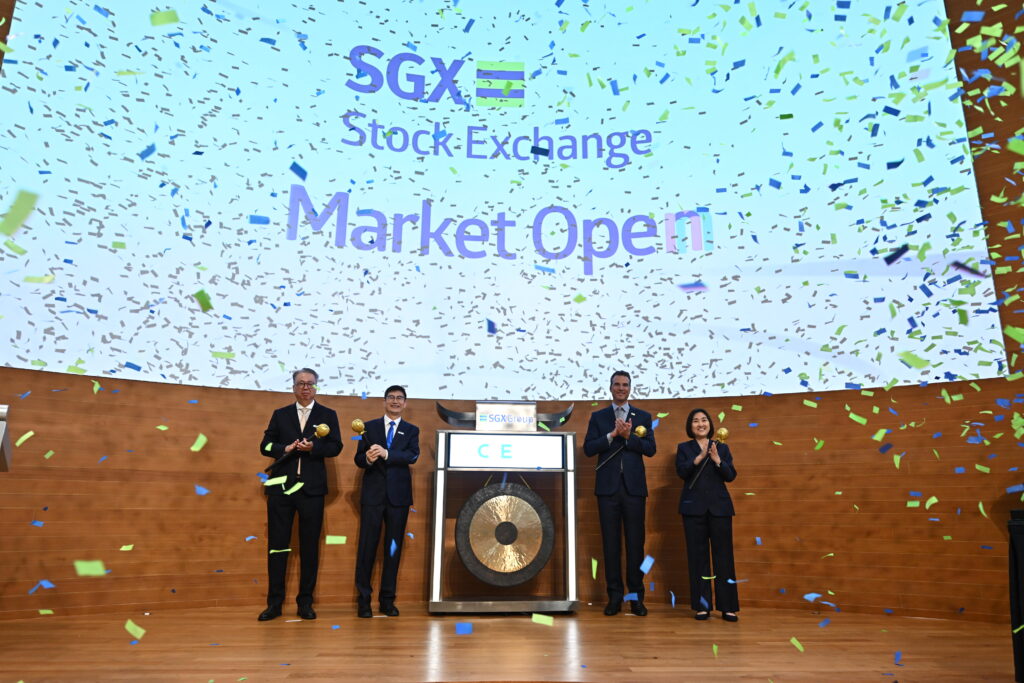GOVERNANCE
Shaping the Future Through Ethical Leadership
GOVERNANCE
Since its inception, CNE has upheld strong corporate governance as the foundation of its commitment to sustainable clean energy and professional excellence.
Through transparent decision-making, ethical business practices, and robust risk management, we ensure accountability at every level.
Governance Level
Overall management and supervision of ESG matters
Board of Directors
ESG Committee
(Authorize)
Management
Guide, coordinate and supervise ESG matters
ESG Steering Group
ESG Working Group
Executive Body
Carry out and promote
ESG tasks
Group Functions and Business
Governance Structure
Sustainable development is embedded into key decision-making across the organisation to ensure high-quality growth and protect stakeholder interests. ESG governance is embedded across all levels, from the Board of Directors to every business units.
The Board sets the overall ESG strategy and acts as the highest authority on ESG matters. Oversight is provided by the ESG Committee, while the ESG Steering and Working Groups are responsible for day-to-day execution and coordination of ESG initiatives.
Stakeholder Communication and Engagement
Effective stakeholder engagement ensures our ESG actions are aligned with the needs and expectations of the communities we serve. Open channels of communication allow us to identify and prioritise key ESG issues, ensuring responsive action and long-term value creation.
Key
Stakeholders
Governments & Regulators
Shareholders & other investors
Employees
Supplier & Contractors
Clients & Partners
Industrial Associations
ESG Rating Agency
Public & Community
Major Communication Channels
Information Reporting; Conference; Face-to-Face Communication; Phone Call; Questionnaire
Annual Report; Announcement & Notice; Conference; Phone Call; Email; Questionnaire
Staff Meeting; Face-to-Face Communication; Training; Questionnaire
Conference; Phone Call; Official Correspondence; Face-to-Face Communication; Questionnaire: Training
Conference; Phone Call; Official Correspondence; Face-to-Face Communication; Questionnaire
Conference; Phone Call; Industry Activities; Official Correspondence
Annual Report; Official Correspondence
Public Survey; Visiting & Interview; Questionnaire
Through ongoing engagement, we identify and assess key ESG issues, ensuring our actions are responsive and impactful. Here’s how the process may look like.
0
1
Identify Potential Material Issues
Based on the business model, the status of industry, national policies, and capital market concerns, identify material issues and refer to the following standards:
- ESG Reporting Guide
- GRI Standards
- SDGs
0
2
Communicate with stakeholders & Analyze Material issues
- Collect feedback from internal & external stakeholders through multiple channels as the data basis for materiality assessment.
- Concluded a stakeholder materiality matrix after taking into account national policies, concerns of capital markets & assessment agencies.
0
3
Identify Material Issues
- Management has reviewed the materiality analysis result, provided review suggestions based on the Group’s operating conditions, & confirmed the material issues.
- Develop management objectives & implementation plans for ESG matters based on material issues.
Ethical Compliance and Responsible Operations

Integrity and Compliance
High ethical standards guide our operations. A zero-tolerance policy toward corruption is reinforced through preventive measures, conflict-of-interest policies, and whistleblower protections. Regular anti-fraud training strengthens our culture of integrity. In 2022, no breaches of the code of conduct were reported.

Information Security and Privacy
Data protection is safeguarded through compliance with national regulations, risk assessments, and robust cybersecurity measures. We continuously strengthen network security, enhance employee accountability, and establish swift response procedures for information security incidents. Training and awareness campaigns further reinforce a secure digital environment.

Intellectual Property and Brand Protection
CNE safeguards intellectual property through a structured management system aligned with legal requirements. We establish clear responsibilities for IP oversight, respect third-party rights, and implement review mechanisms to prevent violations. Additionally, we invest in brand development, ensuring a strong and credible corporate identity.

Sustainable Supply Chain Management
Procurement practices are guided by fairness, transparency, and ethical standards. Our sustainable supply chain policies evaluate environmental, social, and legal factors, ensuring that suppliers align with high standards in EHS management, product quality, and corporate responsibility. Through collaborative partnerships, we drive long-term sustainability across our supply network.
Our Commitment to Ethical Conduct and Responsible Partnerships
